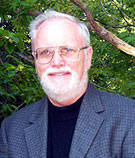November 2005

NOTES FROM THE ACADEMIC SENATE CHAIR
CLIFFORD BRUNK
Dear Colleagues:
Greetings. As the 05-06 Chair of the UC Academic Senate, I welcome the opportunity to share thoughts with the Senate faculty at large and other friends of the Senate in these regular ‘Chair’s Notes.’ The Senate’s business year is fully underway, having been launched in September with the first Academic Council meeting on September 28, and with two all-day retreats that same week– one for the standing committees of the Assembly, the other for the Divisional Chairs and Senate Directors. We are busily engaged with a number of policy issues and initiatives, such as those mentioned in the companion interview on this page of the newsletter.
Among this year’s issues, the UC Science and Mathematics Initiative (SMI) stands out because of its pedagogical, practical and political importance. The SMI (also known as the California Teach Program) is a joint project between UC and the Governor to address a critical shortfall in the number and quality of California K-12 science and math teachers. Its goal is to increase UC’s output of credentialed science and math teachers to at least 1000 per year by 2010, effectively quadrupling the current number. Once the program is in place, a qualified student will be able to earn a science, mathematics or engineering bachelor’s degree, plus prepare for a single-subject credential, in four years. Field experience, financial incentives for students who commit to remain a science or math teacher for a specified period of time, industry-funded internships, and ongoing mentoring from master teachers are all part of the SMI. Clearly, this initiative is ambitious and worthy of our best efforts. The Senate will provide a “bottom up” approach to complement the “top down” initiative provided by the Governor and President Dynes. The Academic Council has been discussing how most effectively to join with the administration in the development and implementation of the SMI, and is now in the process of forming a Senate work group to coordinate with the administration in promoting the SMI, and discharge our responsibilities to oversee curriculum and course development and teacher credentialing. SMI has tremendous potential for making a difference in preparatory education in these fields, and I encourage you to visit the SMI web site for more information.
The issue of faculty and executive compensation is a recurring interest of the Senate’s and is the particular focus of Senate committees, particularly University Committees on Planning and Budget (UCPB) and Faculty Welfare (UCFW). Discussion of this issue has recently gained momentum from the Regents’ consideration of university-wide compensation and specific proposals to: 1) try to achieve market comparability for all UC employees over a ten year period beginning in 2006-07; and 2) to establish more rational procedures for setting and determining the salaries of UC’s senior managers, shifting the oversight of salaries for that group from the Regents to the administration. A third proposal, which has been deferred for later consideration calls for the use of private funds as a portion of senior management compensation. The Academic Council has been briefed on these proposals and discussed them at length at our last two meetings. Raising UC employee salaries to market levels is a laudable goal, but accomplishing this goal will be challenging. The Academic Council has formulated two resolutions, one responding to the policy questions raised by these proposals, and the other opposing on principle the use of private fund-raising efforts to augment senior management salaries. The resolutions will be forwarded to the Assembly for endorsement at its November 9 meeting, and I will provide an update on this matter in coming Notes.
Finally, I would like to call your attention to a report that came out in August capping a three-year effort on the part of the Senate and the administration to improve how faculty instructional activities are measured and reported. The final report, entitled “A System for Reporting Faculty Instructional Effort,” is founded on a pair of previous reports (see appendices three and four) produced by a 2002 joint Task Force established by former UC Provost Judd King in response to a 2001 state audit of UC’s teaching performance. Building on the earlier Task Force recommendations, this recent report proposes a new systemwide methodology for categorizing faculty “total instructional effort”. The Academic Council has endorsed implementation of the proposed system and recommends ongoing monitoring and a review of its impact in two years. I applaud the groups and individuals who have been involved in this fundamentally important project, and believe these changes will significantly benefit the University and its faculty by more accurately reflecting the nature of instruction at a research institution and conveying a clearer understanding of faculty instructional efforts to legislators and the pubic.
Have a rewarding and productive fall term. I look forward to sharing more information with you in future issues.
- Cliff Brunk
